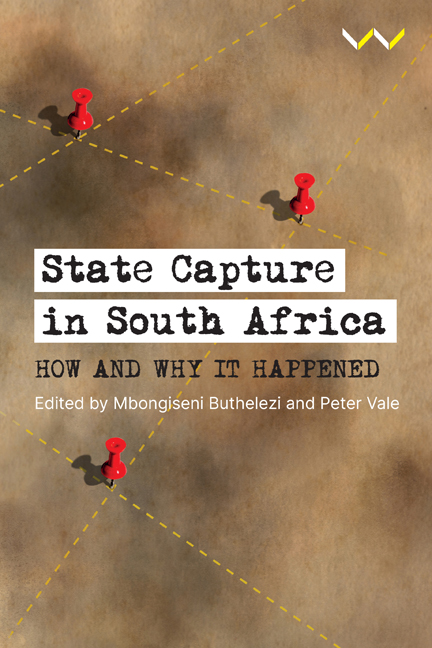Chapter 3 - The Foundations of Corruption in South Africa
Published online by Cambridge University Press: 28 February 2024
Summary
This chapter is concerned with three key protagonists in South Africa's debate about not only state capture but corruption generally. I will call these protagonists the ‘Moralists’, the ‘Neoliberals’ and the ‘Marxists-Fanonists’. These labels do not encompass everyone in the debate. There are people who cross between, mediate and even sometimes move beyond them. But Moralism, Neoliberalism and Marxism-Fanonism have prominence. They arise out of the country's great and enduring sociopolitical tendencies and ideological traditions. Each systematically elides important features of the problem of corruption, and that they do so is both self-defeating and obstructive of South Africa's progress.
THE DEBATE ABOUT CORRUPTION IN SOUTH AFRICA
The articulation of a concept of corruption is ordinarily already an act of anti-corruption. At its core, the concept asserts certain standards of political conduct, which are seen as in some sense vital to the viability of a political community. It simultaneously identifies, denounces and announces a desire to curtail excessively self-regarding behaviour that violates those standards and, therefore, threatens the community. The concept of corruption is among the oldest and most widely used concepts in the lexicon of human politics. It appears in the extant texts of dynastic Sumeria and Egypt (Westbrook 2003), in the laws of classical Rome and China, and across the canon of political thought in such diversity as Plato, Kautilya, Ibn Khaldun, Niccolo Machiavelli, Jeremy Bentham, Mikhail Bakunin and W.E.B. Du Bois.
Those who hope to talk sensibly about corruption must have answers to questions having to do with what standards of conduct, what roles these apply to, how these roles relate to the broader institutional architecture of societies, how these institutions are wrecked and what changes are needed to prevent that. Consequently, the concept is mobilised by diverse social interests into elaborate discourses of corruption and campaigns of anti-corruption. In this process, it has often launched from narrow attacks on individual deviance, into expansive warnings about entire societies hurtling towards collapse, along with utopian visions of course correction.
- Type
- Chapter
- Information
- State Capture in South AfricaHow and Why It Happened, pp. 65 - 86Publisher: Wits University PressPrint publication year: 2023

